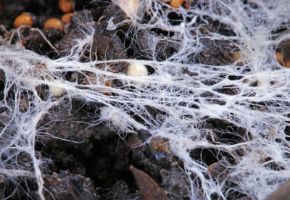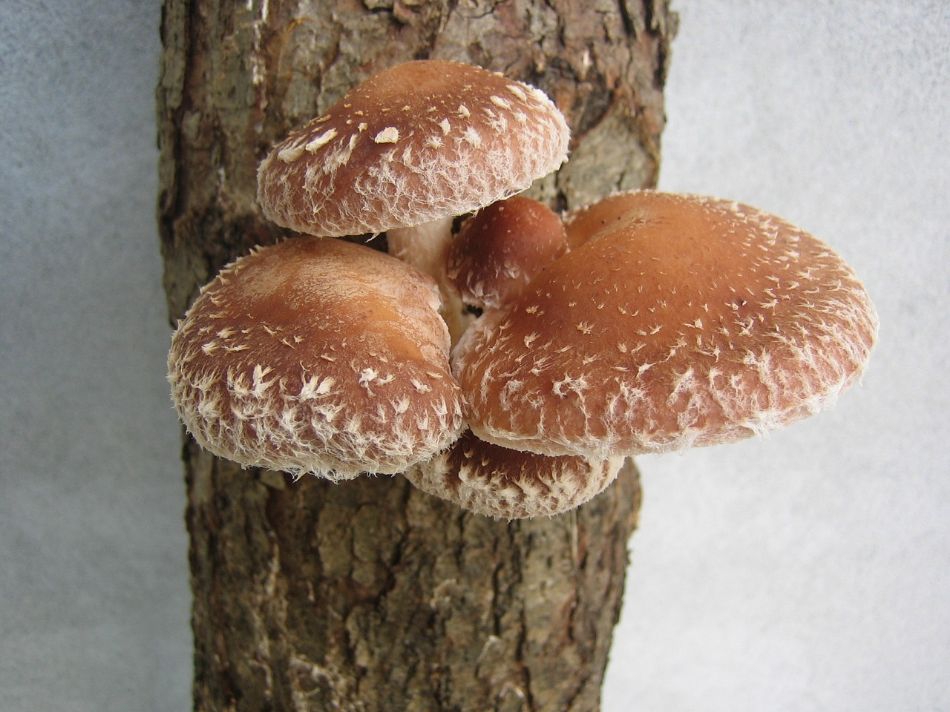Heavy metals represent one of the most insidious threats to human health in the modern world. Their ability to accumulate in the body and the difficulty of naturally eliminating them make it essential to know not only the risks but also the natural remedies available, among which medicinal mushrooms play a leading role.
The most dangerous heavy metals
Let's now review the heavy metals that are most harmful and dangerous to human health (and not only)...
Mercury
Mercury is among the most toxic metals for the human body. It can be ingested through:
- large fish such as tuna and swordfish
- dental amalgams
- air pollution
- broken thermometers
- fluorescent lamps.
Among the initial symptoms of mercury poisoning are:
- hand tremors
- short-term memory loss
- mood disorders and irritability
- coordination problems
- insomnia
- metallic taste in the mouth.
Long-term effects can impact various organs, including:
- permanent damage to the central nervous system
- chronic kidney problems
- severe cognitive alterations
- vision disorders
- cardiovascular problems
- immune system impairment.
Lead
Let's now review lead. Lead contamination can occur through:
- old paints
- contaminated water
- polluted soils
- improperly glazed ceramics
- old batteries
- low-quality cosmetics.
The first signs of lead poisoning are:
- chronic fatigue
- persistent headaches
- difficulty concentrating
- joint pain
- gastrointestinal disorders
- pallor.
There are also serious consequences of prolonged exposure to lead:
- cognitive development delays in children
- damage to the peripheral nervous system
- hypertension
- reproductive problems
- anemia
- kidney damage.
Cadmium
While lead and mercury are two metals often discussed, cadmium may be considered less frequently, but it is present in:
- fertilizers
- batteries
- cigarette smoke
- industrial paints
- industrial discharges
- some costume jewelry.
Early symptoms of cadmium poisoning can resemble seasonal illnesses or flu, such as:
- extreme fatigue
- muscle pain
- respiratory problems
- frequent nausea and vomiting
- loss of smell.
Chronic consequences include:
- severe kidney damage
- early osteoporosis
- pulmonary emphysema
- cardiovascular problems
- alterations in calcium metabolism
- increased risk of developing tumors.
Arsenic
It can be present in:
- contaminated water
- rice
- seafood
- pesticides
- treated wood
- some low-quality dietary supplements.
Among the initial signs of arsenic exposure are some relevant and well-identifiable ones, including:
- characteristic skin lesions
- skin hyperpigmentation
- recurrent nausea
- frequent diarrhea
- tingling in the limbs
- muscle weakness.
Chronic arsenic exposure can cause various repercussions such as:
- skin cancer
- lungs
- bladder and kidneys
- severe cardiovascular problems
- diabetes
- neurological disorders
- reproductive problems
- immune system impairment.
Aluminum
Aluminum is a metal particularly present in our lives, also due to its widespread use in food packaging and personal hygiene products. However, this should make us reflect at least on the choices we can make independently, opting for one product over another. Nevertheless, exposure to aluminum can occur through:
- kitchen utensils
- deodorants
- food packaging
- some antacid medications
- treated drinking water
Among the first symptoms of aluminum accumulation are some that can be easily confused with stress or other issues, such as:
- mental confusion
- learning difficulties
- frequent headaches
- decreased bone density
- digestive problems
Some effects of chronic accumulation can lead to particularly widespread chronic degenerative diseases such as:
- Alzheimer's
- anemia
- alterations in thyroid function
- weakening of the immune system
- kidney problems.
For all the reasons mentioned above, it is important to spend time every day becoming increasingly aware of what happens when our body comes into contact with these substances. Only in this way can all the strategies be implemented to counteract the long-term impact of these on our lives in terms of health, economy (lack of health has a cost) and environment.
The role of mushrooms in detoxification
In addition to many preventive strategies, such as making correct choices when purchasing food and cosmetic products or analyzing the water we use, there are detoxification programs.
From intermittent fasting, through aloe, algae (Klamath, Chlorella), and clays, we also find mushrooms at a certain point...
How mushrooms work
Medicinal mushrooms possess unique properties that allow them to:
- bind heavy metals through bioactive compounds
- stimulate the immune system
- promote the elimination of toxins
- protect organs from oxidative damage
The most effective mushrooms
Reishi (Ganoderma lucidum)
Reishi is considered the king of medicinal mushrooms. This mushroom helps protect the liver, boost the immune system, and promote the detoxification of heavy metals.
Cordyceps sinensis
Cordyceps is particularly effective in renal protection, helping to improve its functionality, promote the elimination of toxins, and reduce inflammation.
Shiitake (Lentinula edodes)
In addition to its detoxifying properties, Shiitake is rich in selenium. This mineral counteracts the effects of heavy metals, supports the immune system, and promotes liver detoxification.
Usage methods
Medicinal mushrooms can be consumed fresh, in the form of liquid extracts, capsules, powders, and decoctions. It is essential to choose high-quality products from certified and possibly organic sources and always be followed by your doctor and a qualified specialist in the field.
The dosage must always be personalized based on body weight, health conditions, level of intoxication, and any existing pathologies.
Precautions and contraindications
Although mushrooms are a natural product, it is necessary to pay attention to simple and basic common-sense rules, as the use of medicinal mushrooms is not recommended in cases of:
- pregnancy and breastfeeding
- acute autoimmune diseases
- coagulation disorders
- mushroom allergies
- interaction with medications, especially anticoagulants, immunosuppressants, chemotherapeutics.
Recommendations
It is essential to emphasize that any detoxification program must be supervised by a qualified healthcare professional.
Medicinal mushrooms represent a valuable support in the process of eliminating heavy metals, but they must be used as part of an integrated approach that includes:
- proper nutrition
- a healthy lifestyle
- regular monitoring of health parameters
- constant consultation with your primary care physician
Detoxification from heavy metals is a gradual process that requires time and consistency. The use of medicinal mushrooms can effectively support this process, but it must always be included in a personalized and monitored therapeutic program.
The fungal kingdom is a universe in continuous evolution, with new scientific discoveries emerging every year about their extraordinary benefits for gut health and overall well-being. From now on, when you see a mushroom, you will no longer think only of its taste or appearance, but of all the therapeutic potential it holds in its fibers and bioactive compounds. ✉️ Stay connected - Subscribe to our newsletter to receive the latest studies on: Nature offers us extraordinary tools to take care of our health. Fungi, with their unique balance between nutrition and medicine, represent a fascinating frontier we are only beginning to explore. Continue to follow us to discover how these extraordinary organisms can transform your approach to well-being.Continue your journey into the world of fungi










